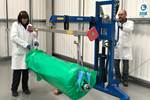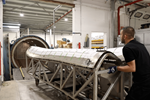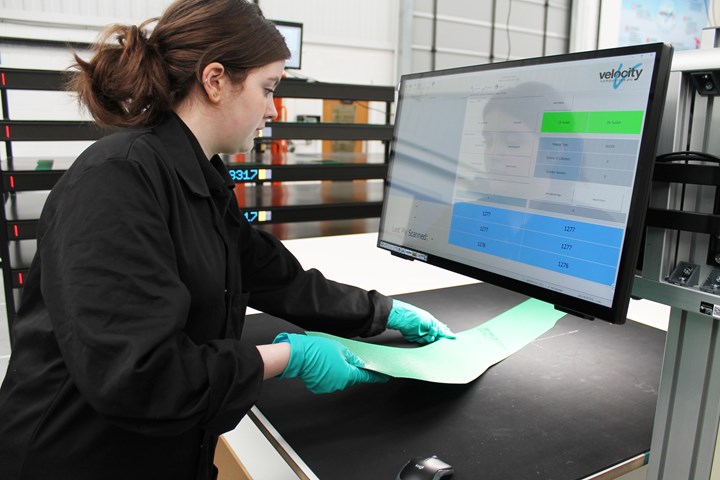Velocity Composites launches digital manufacturing cell to improve material efficiency
Industry 4.0 manufacturing cell is tailored to effectively and efficiently trace individual composite plies through the entire value stream.
Aerospace supplier Velocity Composites (Burnley, U.K.) has launched a new digital manufacturing cell designed to help improve traceability and efficiency for customers. The cell, located at Velocity Composites’ headquarters in Burnley, Lancashire, creates a process where all composite plies can be scanned, logged and sequenced efficiently to improve traceability and reduce costs.
“We aim to be at the forefront of Industry 4.0 technologies to improve the aerospace supply chain, helping customers to cut waste, become more efficient and save money,” Matthew Fisher, product and process manager at Velocity Composites, says. “Our digital manufacturing cell is the next step in our journey to improve even further. Our bespoke AVISoCS technology can help customers to fully trace each individual piece of ply within a job, as it is nested, cut and sequenced ready to be delivered.
The cell is the latest in a range of data-driven technology advances at Velocity Composites, aimed at fully tracking and tracing the aerospace supply chain for customers, improving efficiencies and making savings on material and operational costs.
Velocity’s customers have reportedly been able to reduce material waste by up to 20%.
Velocity’s own VRP technology has been designed to manage the entire value stream, from customer demand management, raw material management, batch traceability, complex nesting, kit manufacture and kit logistics, with all areas being connected and sharing real-time data to drive maximum efficiencies, including optimized operations, reduced waste and sound information upon which to make decisions.
“Customers can have a real-time view of jobs from their initial acceptance and planning, through every step before it is delivered,” Fisher emphasizes. “The basic technology is similar to what people would experience when tracking a postage delivery or ordering a takeaway, but we have specifically tailored it to our processes in composite manufacturing to add that value to the aerospace and related sectors.”
Thanks to the company’s proprietary software, Velocity’s customers have reportedly been able to reduce material waste by up to 20%, while also creating operational, stock and process efficiencies in a way which supports staff to be more effective, mitigating the impact of rising material costs while closing the gap on achieving environmental targets for the aerospace sector.
Related Content
-
Toray announces growth, investment in carbon fiber composite materials
As part of its 2023-2025 management strategy, Toray projects 42% growth for pressure vessels, 30% growth in carbon fiber composite materials revenue and a doubling of capital investment.
-
IMDEA introduces digital twin for real-time analysis of composite materials production
Newly designed digital twin by IMDEA and Technical University of Madrid researchers enables manufacturers to see inside composite materials as they are being produced, facilitating early detection of faults.
-
Next-gen composites manufacturing: Combining material, machine and mold cavity data with analytics
Using a sensor, an edge device and machine learning software, sensXPERT sees into processes and is improving quality and cutting scrap, cycle time and energy use for composites customers like ZF and Carbon Revolution.
















